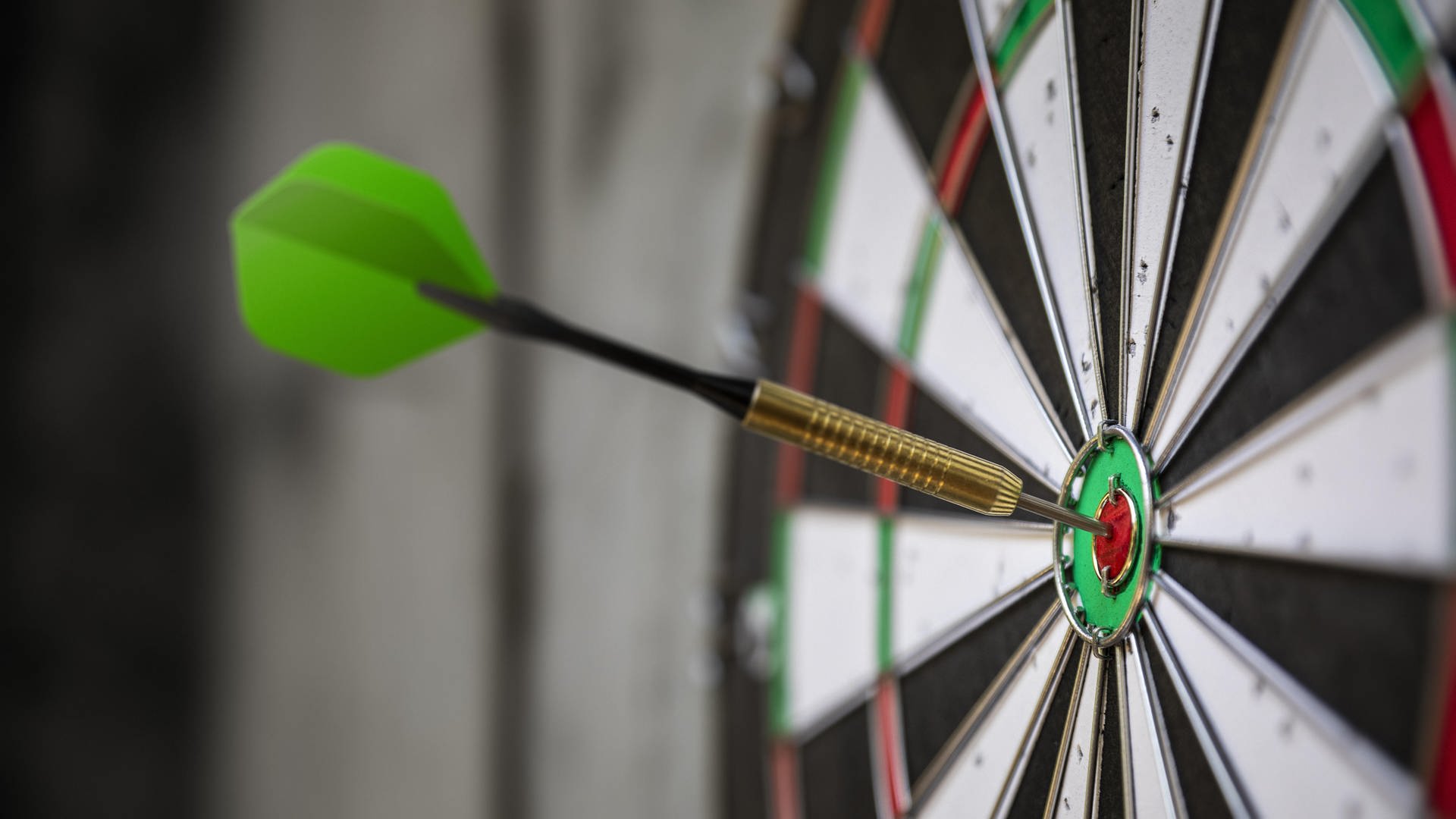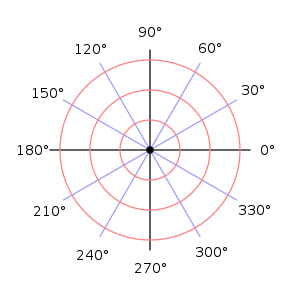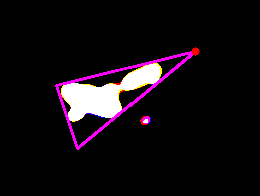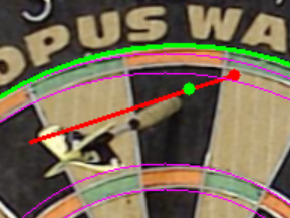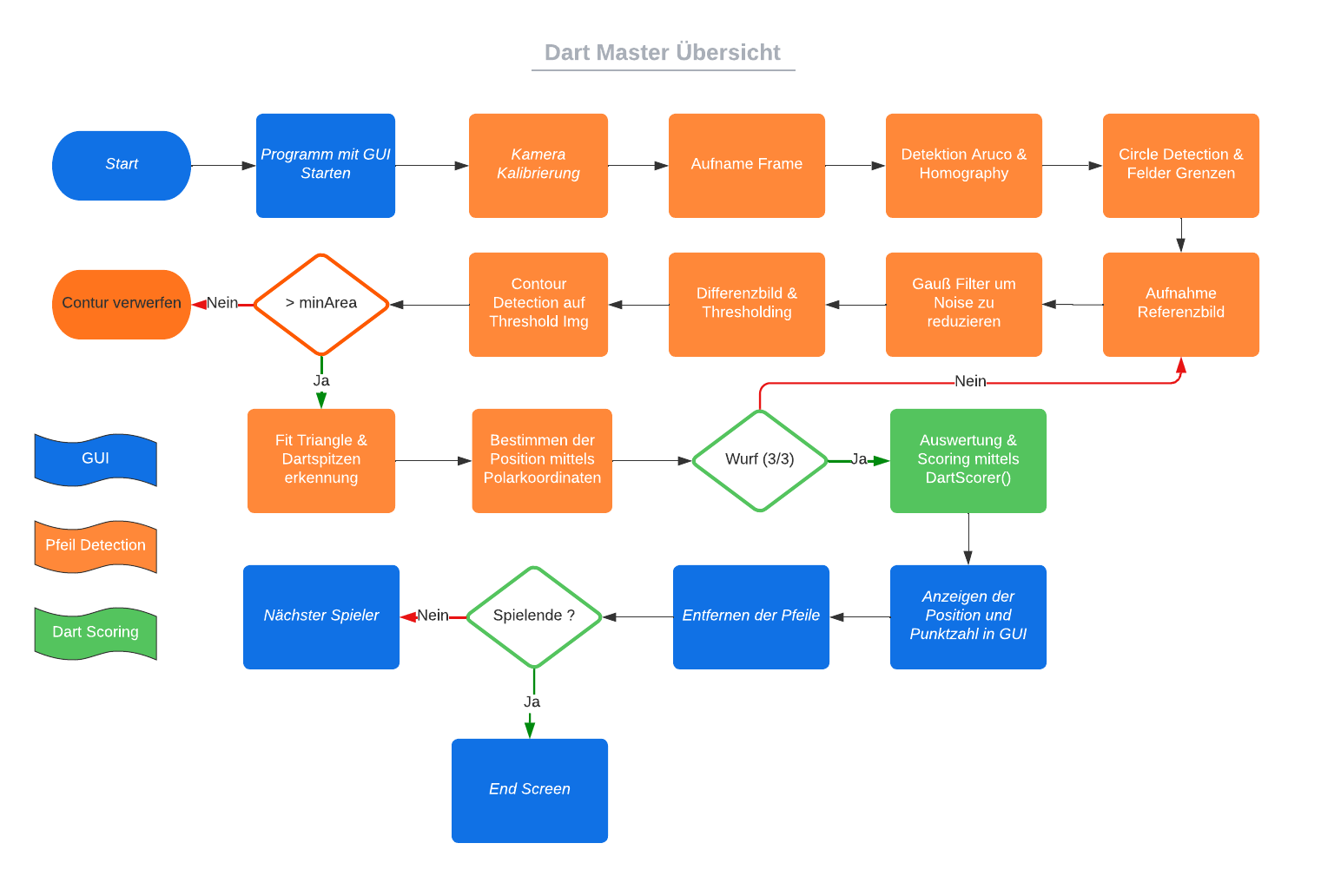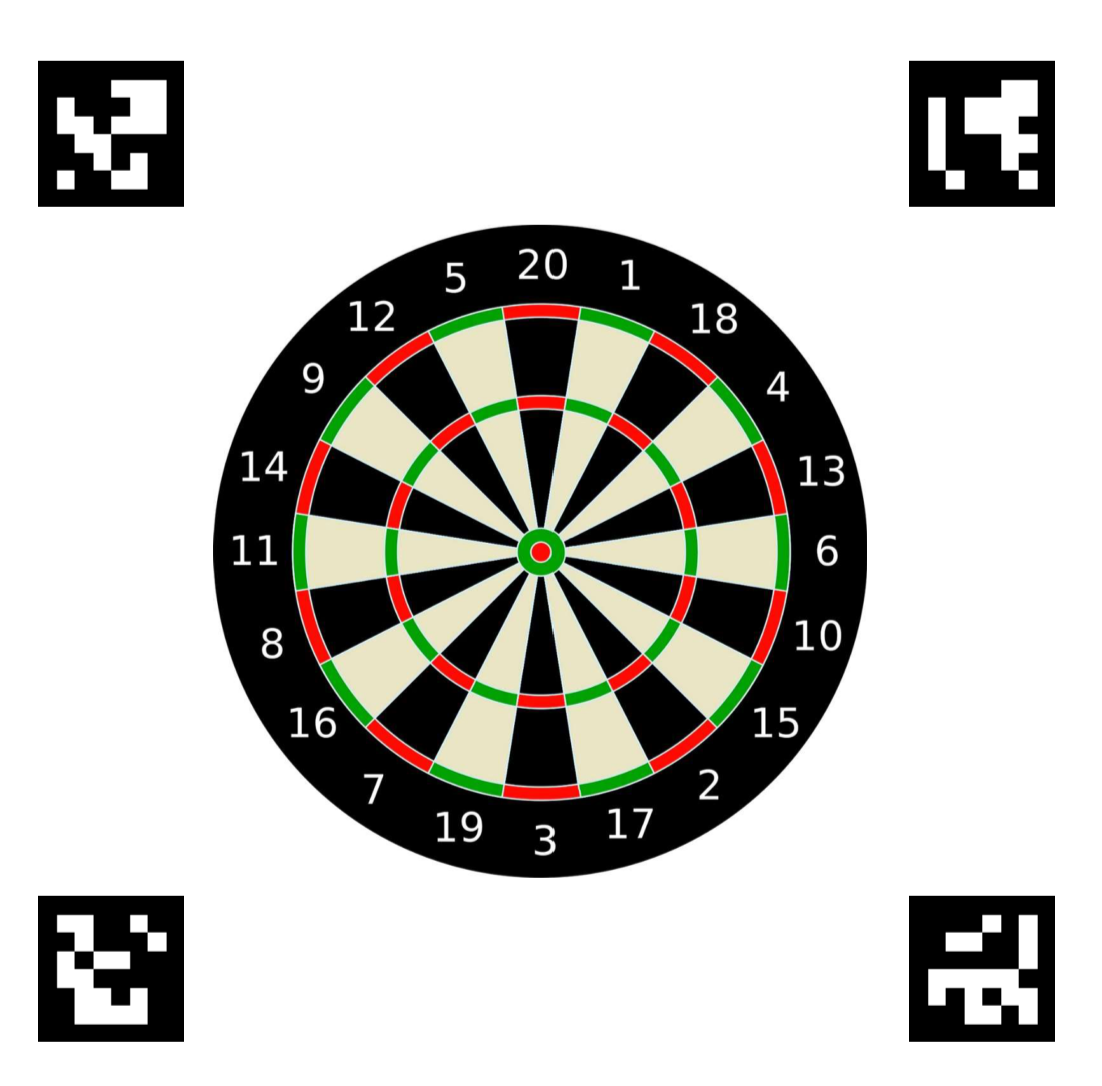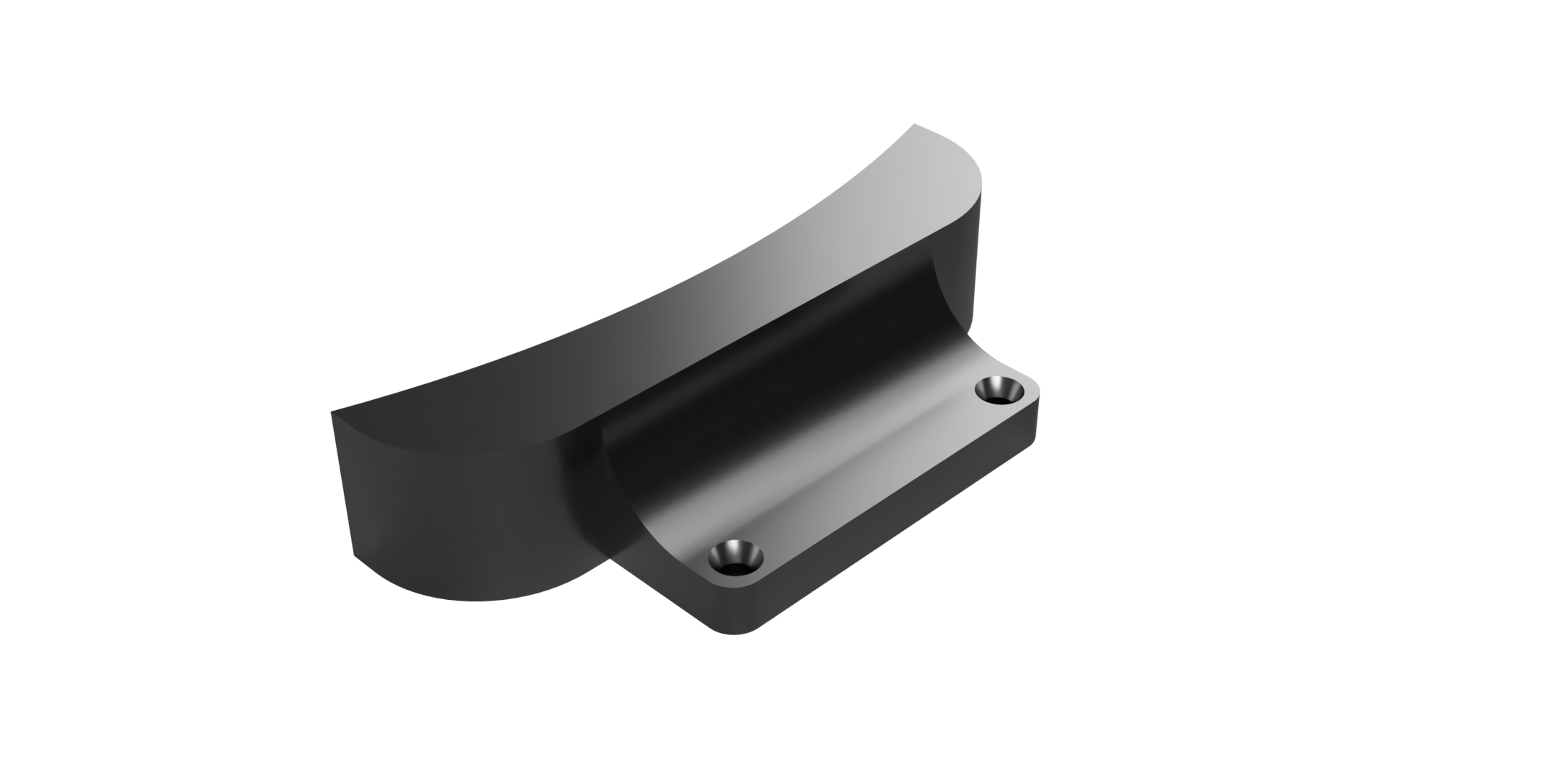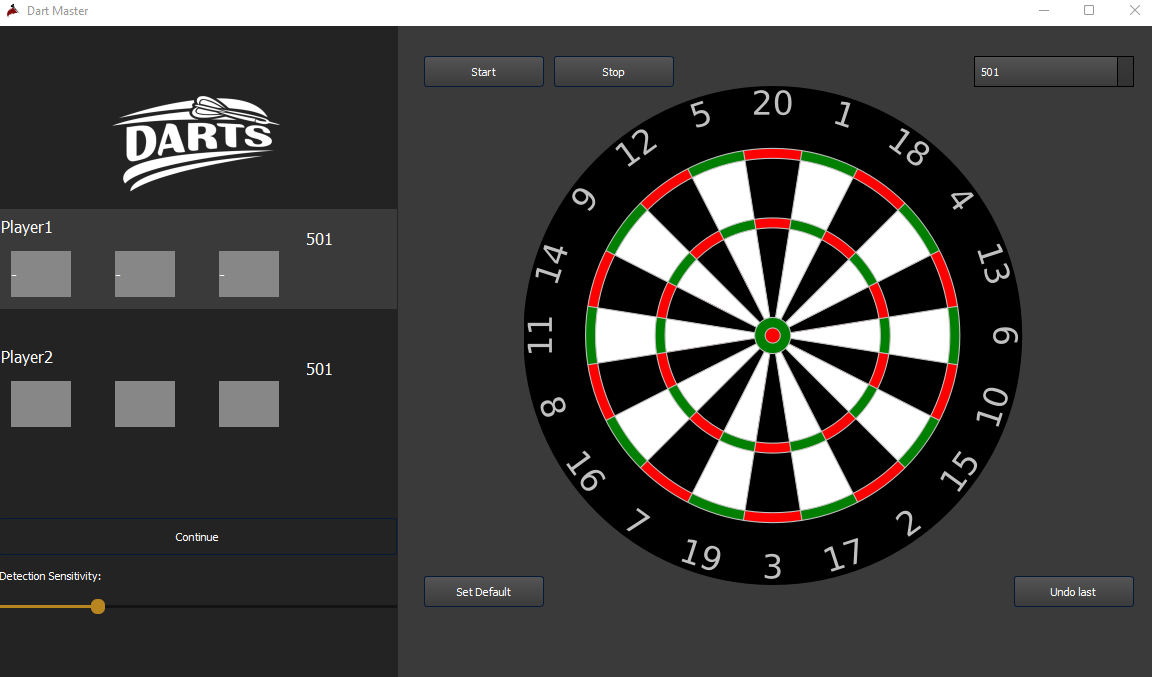This Project was part of the VR/AR course at my university TU Darmstadt. The aim of the Project was to crate an
automatic dart scorer application, where two players can play a game of dart without focusing on the point counting.
The application uses OpenCV for the computer vision part and Pyside2 for the GUI.
We use a calibrated webcam to capture a video stream and process it with OpenCV to extract the darts on the board and
keep track of the players.
The complete detection pipline looks something like this:
- First detect the aruco markers
- detect the dart board with a circle detector
- fit a polar coordinate system to the dart board
- take the reference image
- some filters to remove noise and improve the detection
- calculate the difference image between the reference image and the current image
- contour detection on the difference image
- contour > minimum area filter
- fit triangle to the contour
- find the tip of the dart by using the corner opposite of the shortest side
- correct the tip position by moving it to the center of the triangle relative to its size
- getting the position of the tip relative to the polar coordinate system
- Evaluation of the score with DartScorer()
The overall pipeline is summarized in this flowchart (currently only in German):
You will need:
- a webcam
- something to mount the webcam
- a computer
- a dartboard
- the 4 aruco markers that can be found in Resources/Doku/
Place the Markers around the dartboard like in the image below and make sure they are visible. Place the webcam in front of the dartboard approximately 1 meter away and slightly to the right, so it doesn't get in the way with throwing the darts.
Important: You need good lighting to get good results. Only Lighting from directly above the dartboard is bad. Optimal would be a ring light with a diffusor like this:
We had some problems with shaking of the board wich induced noise in the detection. We solved this by 3D printed mounts for the board:
Just clone the repository and run the following command:
pip install -r requirements.txtFirst you need to calibrate the camera. This can be done with the Calibration Script. Then you can start main_with_gui.py. The GUI looks like this:
- First select your starting Points (501, 301 or 101) for your dart game.
- Then set the default image with the button "Set Default".
- After that you can start the detection with "Start"
- If the darts are detected badly you can adjust the threshold with the slider.
